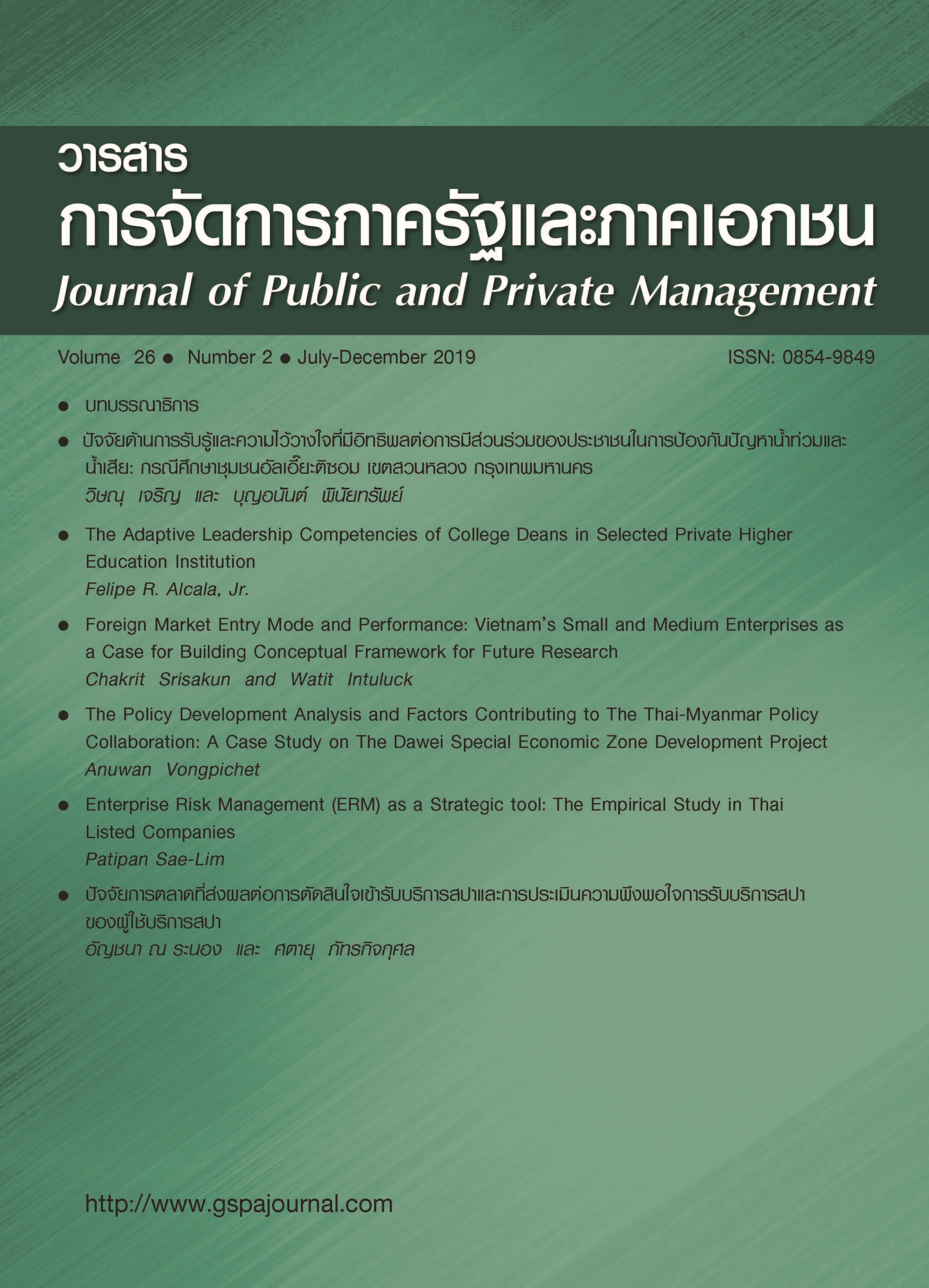Enterprise Risk Management (ERM) as Strategic Tool for Organizational Performance: Empirical Study in Thai Listed Companies
Abstract
The objectives of this research are to analyze the causality among the concept of ERM determinants, implementing ERM and organizational performance. The conceptualization is constructed from contingency (Galbraith, 1973), institutional theory (DigMaggio & Powell, 1983) and incorporated with ERM standards (COSO, 2004). A mixed method, quantitative methodology through multivariate analysis with Structural Equation Modelling (SEM) was adopted to confirm between theories and data. Purposive sampling through the qualitative methodology was encapsulated by quantitative findings. With 164 Thai listed companies (population=700), the results showed that the data fits well with the theories. Moreover, the findings revealed that embedding ERM could significantly enhance organizational performance. ERM has become a buzzword from turbulent external environments, successful implement of ERM totally rests upon internal factors: leadership, organizational characteristics (risk-awareness culture) and ERM resources. Ultimately, risk management policy, governance and risk management committee are perceived as important conditions before sophisticated ERM processes to be employed.



